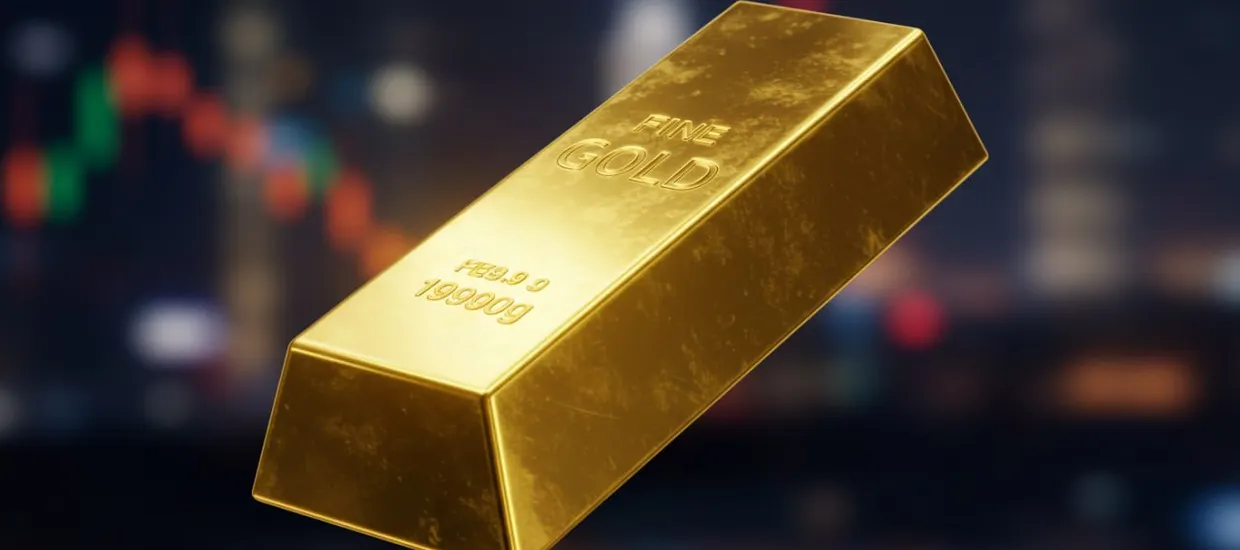- Atomic number: 79
- Symbol: Au (from Latin 'aurum')
- Melting point: 1,064.18°C (1,947.52°F)
- Boiling point: 2,856°C (5,173°F)
Fun Facts About Gold

Gold has captivated human imagination for millennia with its lustrous beauty and enduring value. From its formation in the cosmos to its role in cutting-edge technology, gold continues to fascinate and surprise us.
Gold's journey begins in the hearts of dying stars, where it is forged through nuclear fusion. This cosmic origin is just one of many Fun facts about gold that make it a truly extraordinary element. Let's explore some of its unique properties:
Gold's resistance to corrosion and its malleability make it an ideal material for various applications. Did you know that a single ounce of gold can be beaten into a sheet covering nearly 100 square feet? This remarkable ductility is one of the many Fun facts about gold that sets it apart from other metals.
Throughout history, gold has played a pivotal role in shaping civilizations and economies. Its rarity and beauty have made it a symbol of wealth, power, and divinity across cultures. Here are some fascinating historical Fun facts about gold:
| Period | Significance |
|---|---|
| Ancient Egypt | Used in royal burials and considered the flesh of the gods |
| Ancient Greece | Associated with the god Apollo and used in Olympic victor's crowns |
| Middle Ages | Alchemists sought to transmute base metals into gold |
| Modern Era | Backbone of monetary systems until the 20th century |
The allure of gold has inspired countless myths, legends, and historical events. From King Midas's golden touch to the California Gold Rush, this precious metal has left an indelible mark on human culture and imagination.
While gold's beauty and value are well-known, its scientific and technological applications are equally impressive. Here are some modern Fun facts about gold that highlight its importance beyond jewelry and finance:
- Space exploration: Gold is used in astronaut helmets to reflect harmful radiation
- Medicine: Gold nanoparticles are used in cancer treatment and diagnosis
- Electronics: Gold's conductivity makes it essential in many electronic devices
- Environmental science: Gold catalysts help reduce harmful emissions
The unique properties of gold continue to drive innovation across various fields. Its ability to conduct electricity while resisting corrosion makes it invaluable in the production of reliable electronic components.
As we explore Fun facts about gold, it's important to consider its production process and environmental implications. Gold mining and refining can have significant ecological consequences, prompting the industry to seek more sustainable practices.
| Method | Description | Environmental Impact |
|---|---|---|
| Open-pit mining | Large-scale excavation of surface areas | High - landscape alteration, habitat destruction |
| Underground mining | Extraction from deep underground tunnels | Moderate - potential for groundwater contamination |
| Placer mining | Extraction from river sediments | Varies - can disrupt aquatic ecosystems |
| Recycling | Reprocessing existing gold products | Low - reduces need for new mining |
The gold industry is increasingly focusing on responsible mining practices and exploring innovative recycling methods to minimize environmental impact while meeting global demand.
Gold's role in the global economy remains significant, despite changes in monetary systems. Here are some economic Fun facts about gold:
- Gold reserves are held by central banks worldwide as a store of value
- Gold is often seen as a "safe haven" asset during economic uncertainty
- The price of gold can be influenced by geopolitical events and currency fluctuations
- Gold ETFs (Exchange-Traded Funds) allow investors to gain exposure without owning physical gold
Understanding gold's economic significance can provide valuable insights into global financial trends and investment strategies.
As we've explored in this article, the Fun facts about gold extend far beyond its shimmering surface. From its cosmic origins to its cutting-edge applications in technology and medicine, gold continues to surprise and inspire us. Its historical significance, cultural value, and economic importance make it a truly fascinating subject of study. As we look to the future, gold's role in our world is likely to evolve, but its allure and importance are sure to endure. Whether you're a scientist, investor, or simply curious about this remarkable element, there's always more to discover about the enduring mystery and magic of gold.
FAQ
What makes gold so valuable?
Gold's value stems from its rarity, durability, and historical significance as a symbol of wealth. Its unique properties, such as resistance to corrosion and malleability, also contribute to its high value in various industries.
How is gold formed in nature?
Gold is formed through various geological processes, including the cooling of magma or hot springs depositing gold in rock formations. Some gold is also believed to have cosmic origins, formed during supernova explosions.
Can gold be created artificially?
While alchemists of old failed in their attempts to create gold, modern science has achieved nuclear transmutation of other elements into gold. However, this process is extremely expensive and not economically viable for large-scale production.
What are some unexpected uses of gold in technology?
Gold is used in space technology to protect against radiation, in medicine for cancer treatments, and in environmental science for pollution control. Its excellent conductivity also makes it valuable in electronics manufacturing.
How does gold mining affect the environment?
Gold mining can have significant environmental impacts, including deforestation, habitat destruction, and water pollution. However, the industry is increasingly adopting more sustainable practices and exploring recycling methods to minimize